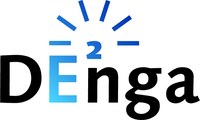DE²nga
Digitally-supported scientific reasoning meets service-learning


The objective is to develop, implement and evaluate teacher training courses on digitally-supported scientific reasoning for the subject of biology which uses the teaching-learning-concept of service-learning to train multipliers and promote subject-related knowledge transfer.
Project data
| Research lines | Research Line Professional Competencies of Preschool and School Teachers | ||
| Departments | Biology Education | ||
| Period | since 9/1/2023 | ||
| Status | current | ||
| IPN researchers | Prof. Dr. Moritz Krell (Project lead), Prof. Dr. Hans Anand Pant (Project lead), Ronja Sowinski (Project coordinator) | ||
| Members of the research alliance | IPN Leibniz-Institut für die Pädagogik der Naturwissenschaften und Mathematik (Lead), Institut für Qualitätsentwicklung an Schulen Schleswig-Holstein, Universität Koblenz | ||
Different methods of scientific reasoning such as observation, comparison, experimentation and modeling can be enriched in the classroom using digital innovations (e.g. digital identification aids, interactive scaffolds, digital assistance systems). Digitally-supported knowledge acquisition of this kind can provide the basis for individualized learning arrangements which foster subject-specific/methodological and digitalization-related competences. Despite many teachers seeing great potential for their lessons in digital learning support, concepts for the design of subject-specific learning arrangements and associated research findings are not being sufficiently implemented in school practice. The DE²nga project is developing, implementing and evaluating teacher professional development courses for the subject biology or teaching with biological components (Nawi, Sachunterricht) using the teaching-learning concept of service-learning to train multipliers. The aim of this professional development format is to foster subject-related knowledge transfer despite current teacher workloads and the prevailing shortage of teaching staff. Teachers from each school take part in the professional development courses, and receive additional training as change agents for their subject colleagues.









